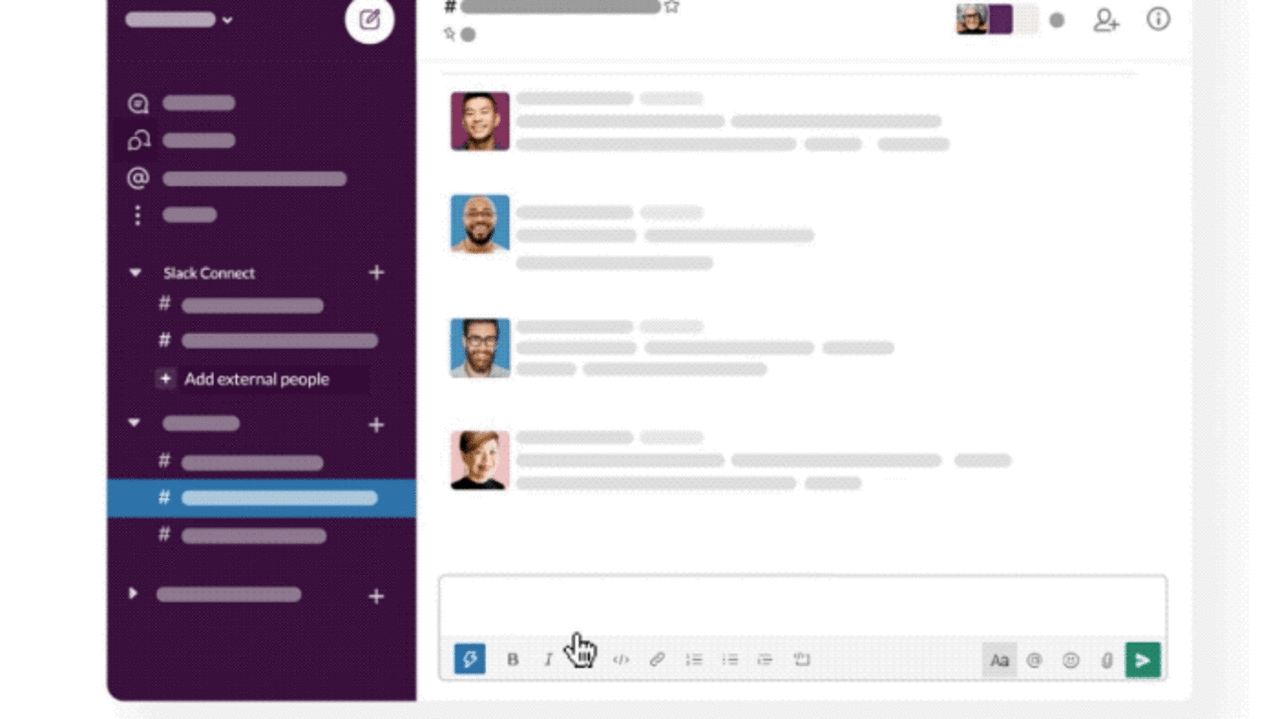Millions In Losses: Office365 Executive Inbox Compromise

Table of Contents
The average cost of a business email compromise (BEC) attack targeting an executive’s Office365 inbox can reach millions of dollars. These sophisticated attacks are on the rise, leaving businesses reeling from financial losses, reputational damage, and operational disruptions. This article explores the mechanics of these devastating attacks, their significant costs, and crucially, how to protect your organization from becoming the next victim of an Office365 executive inbox compromise.
The Mechanics of an Office365 Executive Inbox Compromise
Executive inbox compromises often leverage sophisticated techniques to bypass security measures and gain access to sensitive information. Understanding these methods is the first step towards effective prevention.
Phishing and Spear Phishing Attacks
Phishing and spear phishing emails are the most common entry points for Office365 executive inbox compromises. These malicious emails appear legitimate, often impersonating trusted individuals or organizations.
-
Common Tactics:
- Impersonating the CEO, CFO, or other senior executives requesting urgent wire transfers.
- Creating a sense of urgency to pressure recipients into acting quickly without verification.
- Sending fake invoices or payment requests with slightly altered details.
- Using seemingly official branding and logos to enhance legitimacy.
-
Malicious Links and Attachments: These emails often contain malicious links leading to phishing websites or attachments containing malware designed to steal credentials or encrypt data.
-
Social Engineering: Successful attacks heavily rely on social engineering. Attackers exploit human psychology, using deception and manipulation to trick victims into revealing sensitive information or clicking malicious links.
Exploiting Weak Passwords and Multi-Factor Authentication (MFA) Bypass
Weak passwords and a lack of multi-factor authentication (MFA) are significant vulnerabilities.
-
Weak Password Vulnerabilities: Easily guessable passwords are easily cracked by attackers using automated tools. This provides a direct route to an account.
-
MFA Effectiveness: MFA adds an extra layer of security, requiring multiple forms of authentication (e.g., password and a code from a phone app). This significantly reduces the risk of unauthorized access even if a password is compromised.
-
MFA Bypass Methods: Attackers might try to bypass MFA through phishing attacks designed to obtain the second authentication factor, or through exploiting vulnerabilities in MFA systems themselves.
-
MFA Solutions: Implement strong MFA solutions such as Microsoft Authenticator, Google Authenticator, or hardware security keys.
Malware and Ransomware Infections
Compromised emails can deliver malware and ransomware that can cripple an organization.
-
Malware Impact: Malware can steal sensitive data, including financial information, customer data, and intellectual property. It can also disrupt business operations, leading to productivity losses.
-
Ransomware Consequences: Ransomware encrypts critical files, making them inaccessible unless a ransom is paid. This can result in significant financial losses, reputational damage, and legal repercussions.
-
Robust Antivirus and Anti-malware Solutions: Employing robust antivirus and anti-malware solutions with regular updates is crucial for mitigating these risks. Ensure these solutions are integrated with your email security system.
The High Cost of an Office365 Executive Inbox Compromise
The financial impact of an Office365 executive inbox compromise extends far beyond the immediate loss.
Direct Financial Losses
-
Wire Transfer Fraud: Attackers often manipulate executives into initiating fraudulent wire transfers to offshore accounts.
-
Invoice Manipulation: Fake invoices are sent, tricking the organization into making payments to the attacker's accounts.
-
Ransomware Demands: Ransomware attacks can lead to significant ransoms demanded for the release of encrypted data.
-
Average Cost: The average cost of a BEC attack can range from hundreds of thousands to millions of dollars, depending on the scale and impact.
-
Reputational Damage: Breaches significantly damage an organization's reputation, potentially leading to a loss of customer trust and business opportunities.
Indirect Costs and Legal Ramifications
Beyond direct financial losses, there are significant indirect costs:
-
Forensic Investigation Costs: Investigating a breach requires specialized expertise, leading to substantial costs.
-
Legal Fees and Potential Fines: Organizations may face legal fees, regulatory fines, and potential lawsuits from affected customers or partners.
-
Data Restoration and System Recovery: Restoring compromised data and systems requires time, resources, and specialized expertise.
-
Impact on Insurance Premiums: A security breach can lead to increased insurance premiums for future coverage.
Protecting Your Organization from Office365 Executive Inbox Compromises
Proactive measures are essential to prevent Office365 executive inbox compromises.
Implementing Robust Security Measures
-
Strong Password Policies and MFA: Enforce strong password policies and mandatory MFA for all users, especially executives.
-
Security Awareness Training: Regular security awareness training educates employees about phishing scams, social engineering tactics, and best security practices.
-
Advanced Threat Protection: Invest in advanced threat protection solutions that can detect and block sophisticated phishing attacks and malware.
-
Email Security Solutions: Utilize email security solutions that filter malicious emails and attachments, and that offer sandboxing capabilities to analyze suspicious files in a safe environment.
Developing an Incident Response Plan
Having a well-defined incident response plan is crucial for minimizing the impact of a breach:
-
Suspected Compromise: Establish clear procedures to follow if an executive inbox compromise is suspected.
-
Swift Action and Collaboration: Immediate action and collaboration with cybersecurity professionals are essential to contain the damage and prevent further attacks.
-
Data Recovery and Business Continuity: Implement robust data backup and recovery mechanisms, along with business continuity plans to ensure minimal disruption in operations.
Conclusion
Office365 executive inbox compromises pose a significant threat to businesses, leading to millions in losses and substantial reputational damage. Protecting your organization requires a multi-layered approach, including robust password policies, mandatory multi-factor authentication, comprehensive security awareness training, and the implementation of advanced threat protection solutions. Don't wait until it's too late. Assess your current Office365 security posture today and take steps to prevent an executive inbox compromise from devastating your business. Contact a cybersecurity expert to help you build a robust security framework and ensure your organization is prepared for the ever-evolving threat landscape.

Featured Posts
-
 Who Will Be The Next Pope Leading Contenders And Papal Conclave Predictions
May 12, 2025
Who Will Be The Next Pope Leading Contenders And Papal Conclave Predictions
May 12, 2025 -
 Selena Gomez And Benny Blanco Accidental Glimpse Into Their Private Life
May 12, 2025
Selena Gomez And Benny Blanco Accidental Glimpse Into Their Private Life
May 12, 2025 -
 Selena Gomez Denies Cheating Rumors With Benny Blanco
May 12, 2025
Selena Gomez Denies Cheating Rumors With Benny Blanco
May 12, 2025 -
 Ufc 315 Complete Main Card Breakdown Featuring Muhammad Vs Della Maddalena
May 12, 2025
Ufc 315 Complete Main Card Breakdown Featuring Muhammad Vs Della Maddalena
May 12, 2025 -
 Zurich Classic Mc Ilroy Lowry Trail Leaders By Six Shots
May 12, 2025
Zurich Classic Mc Ilroy Lowry Trail Leaders By Six Shots
May 12, 2025
